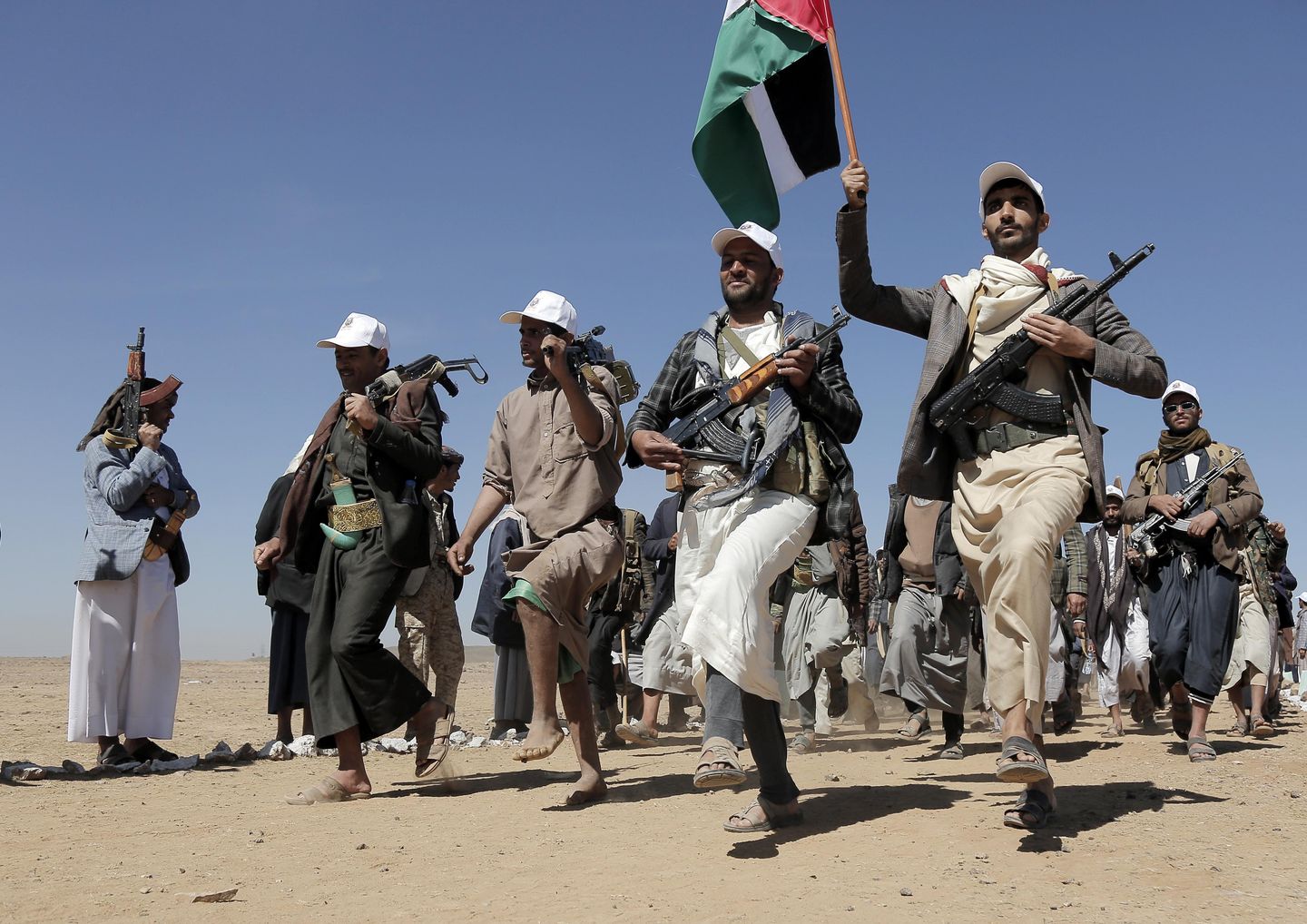The conflict in Yemen has once again escalated as a series of intense Israeli airstrikes shook the rebel-held capital of Sana’a and a port city in the early hours of Thursday morning. The airstrikes came shortly after a Houthi missile targeted central Israel, further exacerbating tensions in the region.
The Israeli airstrikes targeted key Houthi-controlled locations in Sana’a, including military installations and government buildings. The strikes caused widespread destruction and casualties, with reports of multiple civilian casualties and significant damage to infrastructure. In the port city of Hodeidah, the airstrikes targeted Houthi naval bases and other strategic locations.
The Houthi missile strike on central Israel marked a significant escalation in the conflict between the Houthi rebels and Israel. The missile, believed to be a ballistic missile, targeted a densely populated area in central Israel, causing panic and fear among residents. While there were no reports of casualties or significant damage from the missile strike, it served as a clear message of the rebels’ capabilities and intentions.
The Israeli government condemned the Houthi missile strike as a blatant act of aggression and a violation of international law. In response, Israeli Prime Minister Benjamin Netanyahu vowed to retaliate against the Houthi rebels and hold them accountable for their actions. The Israeli military launched a series of airstrikes against Houthi targets in Yemen in what they described as a defensive measure to protect Israeli citizens.
The Houthi rebels, for their part, accused Israel of provoking the conflict and targeting innocent civilians in Yemen. They vowed to defend themselves against Israeli aggression and continue their fight for independence and sovereignty. The Houthi leadership called on the international community to condemn Israel’s actions and support their cause.
The United Nations and other international organizations have expressed grave concern over the escalating violence in Yemen and Israel. UN Secretary-General Antonio Guterres called for an immediate ceasefire and a return to negotiations to resolve the conflict peacefully. He urged all parties to exercise restraint and avoid further escalation of hostilities.
The conflict in Yemen has been ongoing for several years, with the Houthi rebels fighting against the internationally recognized government and a Saudi-led coalition. The conflict has resulted in a humanitarian crisis, with millions of Yemenis facing food insecurity, lack of access to healthcare, and displacement. The recent escalation of violence between Israel and the Houthi rebels has only added to the suffering of the Yemeni people.
The international community has been divided in its response to the conflict in Yemen, with some countries supporting the Saudi-led coalition and others calling for an end to the violence and a negotiated settlement. The United States, a key ally of Saudi Arabia, has provided military support to the coalition, including weapons sales and logistical assistance. Other countries, such as Iran and Russia, have expressed support for the Houthi rebels and criticized the Saudi-led intervention.
The situation in Yemen is further complicated by the presence of terrorist groups, such as al-Qaeda and ISIS, who have taken advantage of the chaos to expand their influence and carry out attacks. The ongoing conflict has created a fertile ground for extremism and instability in the region, posing a threat to global security.
As the conflict in Yemen continues to escalate, the need for a diplomatic solution becomes increasingly urgent. The international community must work together to find a peaceful resolution to the conflict and address the root causes of the crisis. Only through dialogue, cooperation, and compromise can the people of Yemen hope to achieve lasting peace and stability.









